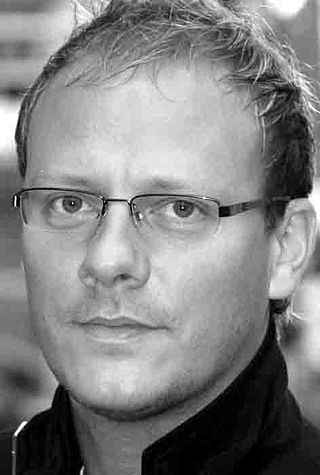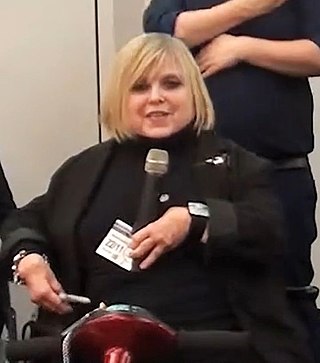
Lancashire is a ceremonial county in North West England. It borders Cumbria to the north, North Yorkshire and West Yorkshire to the east, Greater Manchester and Merseyside to the south, and the Irish Sea to the west. The largest settlement is Blackpool, and the county town is the city of Lancaster.

Harry Dean Stanton was an American actor, musician, and singer. In a career that spanned more than six decades, Stanton played supporting roles in films including Cool Hand Luke (1967), Kelly's Heroes (1970), Dillinger (1973), The Godfather Part II (1974), Alien (1979), Escape from New York (1981), Christine (1983), Repo Man (1984), One Magic Christmas (1985), Pretty in Pink (1986), The Last Temptation of Christ (1988), Wild at Heart (1990), The Straight Story (1999), The Green Mile (1999), The Man Who Cried (2000), Alpha Dog (2006) and Inland Empire (2006). He had rare lead roles in Wim Wenders' Paris, Texas (1984) and in Lucky (2017).

Oldham is a town in Greater Manchester, England, it lies amongst the Pennines on elevated ground between the rivers Irk and Medlock, 5 miles (8.0 km) southeast of Rochdale and 7 miles (11.3 km) northeast of Manchester. It is the administrative centre of the Metropolitan Borough of Oldham, which had a population of 237,110 in 2019.

Manchester Metrolink is a tram/light rail system in Greater Manchester, England. The network has 99 stops along 64 miles (103 km) of standard-gauge route, making it the most extensive light rail system in the United Kingdom. Metrolink is owned by the public body Transport for Greater Manchester (TfGM) and operated and maintained under contract by a Keolis/Amey consortium. In 2021/22, 26 million passenger journeys were made on the system.

The social model of disability identifies systemic barriers, derogatory attitudes, and social exclusion, which make it difficult or impossible for disabled people to attain their valued functionings. The social model of disability diverges from the dominant medical model of disability, which is a functional analysis of the body as a machine to be fixed in order to conform with normative values. While physical, sensory, intellectual, or psychological variations may result in individual functional differences, these do not necessarily have to lead to disability unless society fails to take account of and include people intentionally with respect to their individual needs. The origin of the approach can be traced to the 1960s, and the specific term emerged from the United Kingdom in the 1980s.

Antony Cotton is an English actor and comedian, known for portraying the role of Sean Tully in Coronation Street, as well as portraying Alexander Perry in the original Queer as Folk series. In 2007, Cotton hosted his own talk show titled That Antony Cotton Show, which was cancelled after one series. In March 2013, he won Let's Dance for Comic Relief.

The ITV Telethons were three charity telethons organised and televised in the United Kingdom by the ITV network. They took place in 1988, 1990 and 1992. Each lasted for 27 hours and all were hosted by Michael Aspel. The final telethon in July 1992 raised £15,012,989.
Stephen Redmond is an English former professional footballer who played as a central defender for Manchester City, Oldham Athletic and Bury. Captain of the Manchester City youth team that won the 1986 FA Youth Cup, Redmond made his first-team debut at 18. He quickly established himself in the side, and was named the club's Player of the Year in 1988. The same year, he became the youngest ever Manchester City captain. Between 1987 and 1990 he played every single game in three straight seasons.
The depiction of disability in the media plays a major role in molding the public perception of disability. Perceptions portrayed in the media directly influence the way people with disabilities are treated in current society. "[Media platforms] have been cited as a key site for the reinforcement of negative images and ideas in regard to people with disabilities."
The Union of the Physically Impaired Against Segregation (UPIAS) was an early disability rights organisation in the United Kingdom. It established the principles that led to the development of the social model of disability, wherein a sharp distinction is made between impairment and disability. From the organisation's policy statement: "What we are interested in, are ways of changing our conditions of life, and thus overcoming the disabilities which are imposed on top our physical impairments by the way this society is organised to exclude us."
Laura Ann Hershey was a poet, journalist, popular speaker, feminist, and a disability rights activist and consultant. Known to have parked her wheelchair in front of buses, Hershey was one of the leaders of a protest against the paternalistic attitudes and images of people with disabilities inherent to Jerry Lewis's MDA Telethon. She was a regular columnist for the Christopher and Dana Reeve Foundation, and on her own website, Crip Commentary, and was published in a variety of magazines and websites. She was admired for her wit, her ability to structure strong arguments in the service of justice, and her spirited refusal to let social responses to her spinal muscular atrophy define the parameters of her life as anything less than a full human existence. She was also the mother of an adopted daughter.
Kaite O'Reilly FRSL is UK-based playwright, author and dramaturge of Irish descent. She has won multiple awards for her work, including the Ted Hughes Award (2011) for her version of Aeschylus's tragedy The Persians. O'Reilly's plays have been performed at venues across the UK and at the Edinburgh Festival. Her work has also been shown internationally including in Europe Australia, Korea, Hong Kong and Taiwan. O'Reilly openly identifies as a disabled artist and has spoken of the importance of "identifying socially and politically as disabled" to her work. In 2023, she was elected a Fellow of the Royal Society of Literature.
Lorraine Susan Gradwell MBE was a British disability rights campaigner and sports person, feminist writer and poet.
The Disabled People's Direct Action Network (DAN) is a disability rights activist organization in England and Wales that campaigned for civil rights with high-profile street demonstrations involving civil disobedience, rallies and protests.
The National Centre for Independent Living (NCIL) was a non-profit staffed organisation controlled by and run for disabled people active in social care issues to campaign for and support the independent living of disabled people in the community and using personal assistants, as opposed to living in institutions such as care homes and hospitals. It ceased its work in December 2011.
The Greater Manchester Coalition of Disabled People (GMCDP) was established in 1985, a membership organisation in the UK that is controlled by disabled people. GMCDP is regarded as being influential in the social, cultural, economic, and legal policy debates on a national stage that have impacted on disabled people, grounded in the Social Model of Disability. The GMCDP magazine Coalition was referred to in these debates, its articles being cited in academic textbooks as well as within the community. The history of GMCDP has been a microcosm of the history of the radical disabled people's movement in the UK since the 1980s, with GMCDP members often involved centrally and nationally.

Paul Hunt was an early disability rights activist and leader of disabled people's campaigns in the UK against residential institutions and for independent living. He was born on 9 March 1937 in Angmering, Sussex, with an impairment and he died aged 42 years in London, on 12 July 1979. His work and political influence is now cited in academic and political writings.
Rights Now, sometimes written with an exclamation mark, was a British umbrella group of disabled people's organisations and charities which campaigned for a change in the law to prevent discrimination against disabled people and for a full civil rights law, even though the result was the flawed Disability Discrimination Act 1995. The biggest protest in numbers of people was in July 1994 at Trafalgar Square and Whitehall, London. It was a very broad-based campaign, including trade unions for example. Campaigning to improve the laws for full civil rights continued, but Rights Now as a group ended in 1995.
Then Barbara Met Alan is a 2022 British television drama film about Barbara Lisicki and Alan Holdsworth, the founders of DAN, a disability activism group. It is written by Jack Thorne and Genevieve Barr and stars Ruth Madeley and Arthur Hughes. It broadcast on BBC Two on 21 March 2022.

Barbara Lisicki is a British disability rights activist, comedian, and equality trainer. She is a founder of the Disabled People's Direct Action Network (DAN), an organization that engaged in nonviolent civil disobedience to raise awareness and to advocate for the rights of disabled people. She is a featured subject of the 2022 BBC docudrama Then Barbara Met Alan, and appeared in The Disabled Century on BBC2 in 1999.








